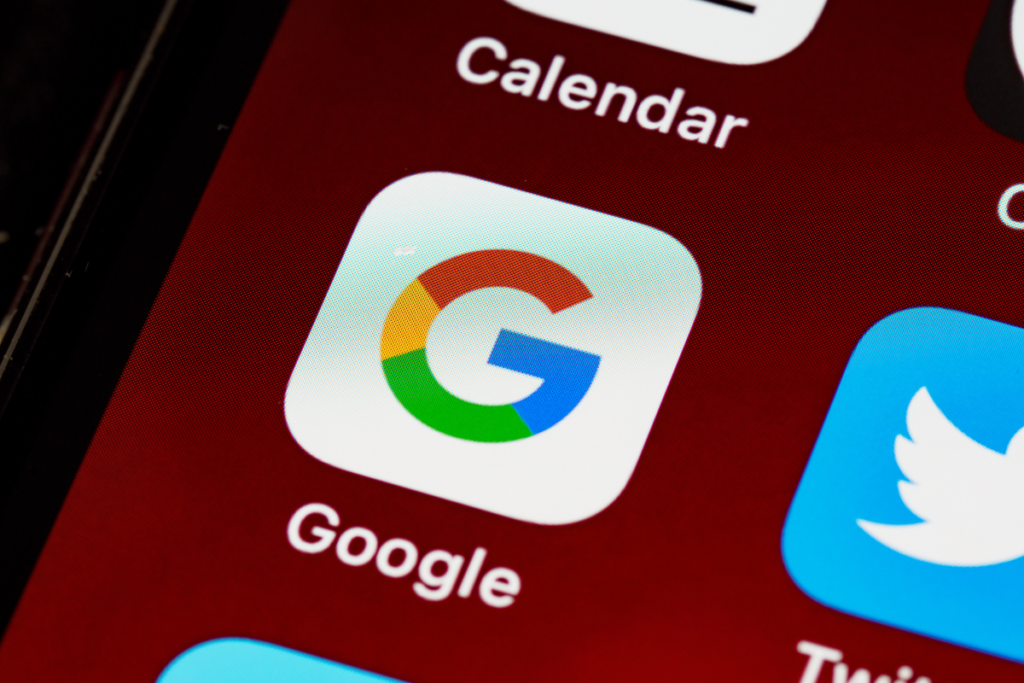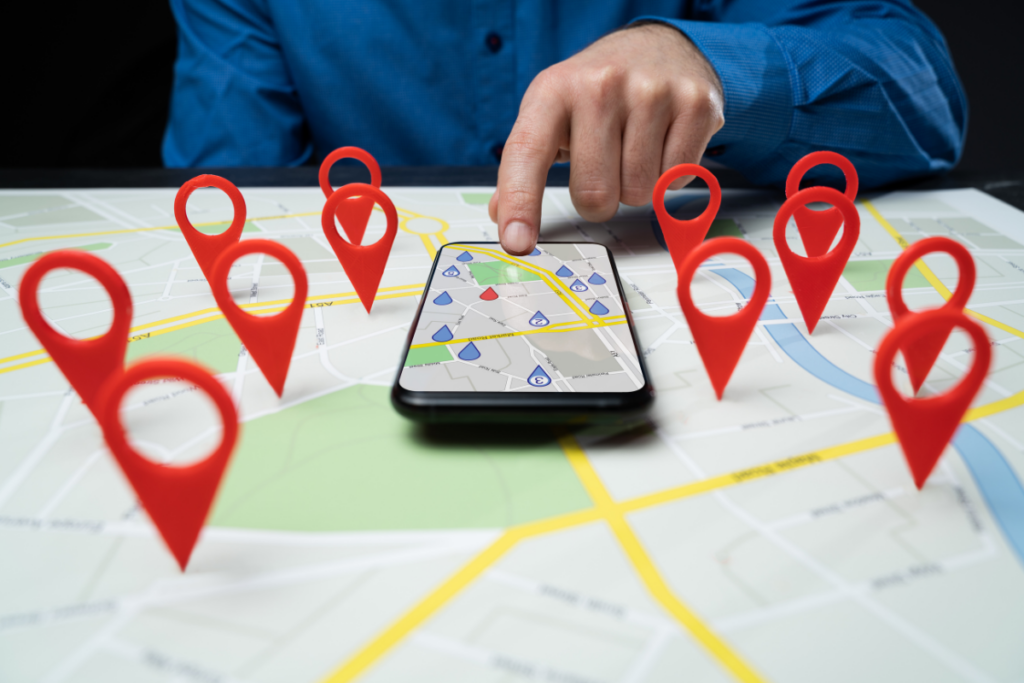
In the fast-paced world of digital marketing, there’s a revolutionary concept that’s changing the game: AI personalisation.
Imagine crafting marketing messages that speak directly to each individual customer, offering them precisely what they need, when they need it.
AI personalisation transforms this vision into reality by harnessing the power of artificial intelligence to analyse data, understand customer behaviour, and tailor marketing messages to perfection.
What is AI Personalisation?
AI personalisation is about using artificial intelligence to create highly customised marketing messages for individual customers.
This approach involves the use of AI algorithms to analyse data related to customer behaviour, demographics, and interests. The goal is to create personalised content, offers, and recommendations that cater to each customer’s unique preferences and needs.
AI personalisation isn’t just a trendy buzzword. It’s a transformative strategy with substantial benefits. It allows you to deliver messages that truly resonate with your target audience.
Businesses can expect several advantages, including increased customer engagement, improved conversion rates, and the cultivation of customer loyalty. It’s a win-win situation where businesses meet their goals, and customers feel valued and acknowledged.
The Benefits of Personalising Your Marketing Messages
Personalised marketing brings a host of benefits. First and foremost, it significantly boosts customer engagement. When customers perceive that marketing messages are tailored to their interests and needs, they are more likely to engage. Key metrics such as email open rates, click-through rates, and website visits see substantial improvements, as customers become more actively involved with the brand.
Moreover, AI personalisation directly influences conversion rates. For instance, picture a customer browsing an e-commerce site for running shoes. Through AI personalisation, businesses can send a personalised email offer for running shoes that aligns with the customer’s preferences. This significantly increases the likelihood of converting a casual browser into a paying customer.
This personalised approach also fosters customer loyalty. When customers feel that a business understands their unique preferences and caters to them, they are more inclined to become repeat customers. The effort put into personalisation conveys that the business values the individual customer, leading to long-term customer advocacy.
Additionally, AI personalisation holds the potential to reduce marketing costs. By precisely targeting marketing messages, businesses can avoid wasting resources on generic, non-segmented campaigns. AI empowers marketers to efficiently identify different customer segments and deliver tailored content that is more cost-effective and relevant.
How to Use AI to Collect Data About Your Customers
The foundation of effective AI personalisation is the collection of comprehensive customer data. Numerous methods exist for collecting this vital information:
Website Analytics: Utilise website analytics tools to track customer interactions, such as the pages they visit, products they view, and the searches they conduct. This data helps paint a detailed picture of customer behaviour.
CRM System: Implement a robust customer relationship management (CRM) system to store essential customer information. This includes details such as names, contact information, purchase history, and past customer support interactions.
Social Media: Social media platforms provide valuable insights into customer interests, demographics, and behaviours. By monitoring these platforms, businesses can gain a deeper understanding of their customers.
Surveys and Polls: Deploy surveys and polls to obtain direct feedback from customers about their preferences, needs, and opinions. These tools provide an avenue for customers to express their thoughts and offer invaluable insights.
Different Ways to Personalise Your Marketing Messages with AI
AI personalisation offers a diverse range of strategies to tailor your marketing messages effectively:
Personalised Product Recommendations: AI algorithms can analyse a customer’s past purchases, browsing history, and social media activity to make product recommendations. E-commerce giants like Amazon excel in suggesting products based on a customer’s purchase history and browsing habits.
Personalised Email Campaigns: AI can be harnessed to create personalised email campaigns. They can use the customer’s name, purchase history, and other relevant data to construct compelling content and offers. E-commerce companies, for example, can use this approach to re-engage customers who have abandoned their shopping carts.
Personalised Website Content: AI enables the customisation of website content, ensuring that different customers are exposed to distinct products, offers, and content based on their individual interests and behaviours. A travel website could present different destination options and hotel deals depending on a customer’s search history and travel preferences.
Personalised Social Media Ads: AI can personalise social media advertisements by targeting them to specific demographics, interests, and behaviours. A clothing company, for example, can direct their ads towards individuals who have recently engaged with fashion-related content on social media.
Examples of How Businesses Are Using AI Personalisation in Their Marketing Messages
Numerous industries are effectively utilising AI for personalised marketing:
Netflix provides tailored video recommendations based on a user’s viewing history, keeping viewers engaged.
Spotify curates personalised music playlists based on listening habits, enhancing the overall experience.
Amazon excels in AI-driven personalisation, delivering custom product recommendations and email campaigns.
Nike deploys AI to cater to individual customer interests, presenting a personalised website experience and delivering targeted social media ads.
Tips for Getting Started with AI Personalisation
If you’re new to the world of AI personalisation, here are some essential tips to begin:
Start with a Clear Goal: Defining your objectives. What do you aim to achieve with AI personalisation? Whether it’s boosting engagement, improving conversions, building customer loyalty, or reducing costs, clearly outlining your goals is crucial.
Collect the Right Data: Effective personalisation relies on relevant customer data, including demographic information, purchase history, and browsing behaviour. Ensure you have the necessary data collection tools and systems in place.
Choose the Right AI Tools: Evaluate AI tools and platforms based on your specific needs and budget, as they play a crucial role in personalisation.
Segment Your Audience: Not all customers are identical. It’s vital to segment your audience based on diverse criteria such as demographics, behaviour, interests, and more. AI can facilitate the automatic segmentation of your customer base for more effective personalisation.
Test and Iterate: Personalisation is an ongoing process. Continuously test different personalisation strategies to discern what works best for your audience. AI can assist in analysing the results and fine-tuning your marketing messages accordingly.
Respect Privacy and Data Security: When collecting and using customer data for personalisation, it’s crucial to respect privacy regulations and ensure data security. Be transparent with customers about how their data is being used and provide options for them to control their data.
Stay Up to Date with AI Advancements: The field of AI is ever-evolving. Stay informed about the latest developments in AI and how they can be applied to enhance your marketing efforts.
Monitor and Measure Results: Utilise analytics and key performance indicators to track the impact of AI personalisation on your marketing campaigns. This will help you comprehend what’s working and where improvements can be made.
Reach Out to Chameleon
Take your marketing strategy to the next level with Chameleon as your partner. Our team of experts have the knowledge and tools to elevate your brand’s marketing efforts, making a significant impact on your business.
Get in touch with us today and discover how Chameleon’s comprehensive marketing services can drive your brand to new heights.
Don’t miss the opportunity to connect with your customers on a deeper level—reach out to Chameleon and embark on a transformative marketing journey. Your success story begins here!
Sections:
Share This Content
More Chameleon Insights
- Digital Marketing
- SEO
- Web Design
Google’s Core Update March 2025: 5 Key Tips for Businesses
Instead of worrying about where your site stands, Chameleon is here to help advise you on how your busyness's website can come out stronger, rather than weaker, following Google's Core Update March 2025 update.
28 Mar 2025
- Digital Marketing
The Tesla Pi Phone Hoax: A Digital Marketing Case Study
The Tesla Pi Phone rumor which has been in circulation for years is a fascinating case study in how digital hype can take on a life of its own. But how did it happen? And what can digital marketers learn from it?
14 Mar 2025
- Digital Marketing
- Microsoft
End of an Era: Microsoft Shuts Down Skype
Skype quickly become a globally renowned platform for communications in 2003 when it was founded, disrupting the landline industry. For many families, it became a means of calling with audio and video, connecting people across the world with ease. At its peak, Skype boasted millions of users worldwide, with households and businesses adopting the platform…
07 Mar 2025
- Digital Marketing
- SEO
7 SEO Link-building Strategies that Work in 2025
We l breakdown our top 7 actionable SEO link-building strategies that you can use for your website.
14 Feb 2025
- Digital Marketing
Digital Marketing Trends to Look Out For in 2025
Digital marketing trends to look out for in 2025. Find out what marketing strategies are taking the world by storm this year and how your business can adapt.
31 Jan 2025
- Digital Marketing
Is Blogging Dead in 2025?
In the ever-evolving digital landscape, there is almost an expectation that one year, blogging will finally 'die', with video marketing, social media marketing and AI-generated content all waiting in the wings to take its place. But is blogging really dead in 2025? Well, this blog is here to prove it isn't.
31 Jan 2025
- Digital Marketing
- SEO
Why Local SEO Is More Important Than Ever in 2025
Boost your business in 2025 with expert local SEO strategies from Chameleon Web Services. Drive traffic, build trust, and stay ahead of the competition!
17 Jan 2025
- Digital Marketing
- SEO
SEO For Startups: 10 Essential Tips for Organic Growth
SEO for startups: boost your startup’s online presence with 10 essential SEO tips! Learn strategies for sustained organic growth today from leading SEO agency.
20 Dec 2024
- Branding
- Web Design
Jaguar’s New Logo: Calculated Gamble or Brand Implosion?
Jaguar's New Logo. Is Jaguar's controversial rebrand a bold move for the future or a betrayal of its luxury heritage? Chameleon dives deep into the topic.
06 Dec 2024
- Web Design
How to Use Colour in Web Design
Learn how to use color effectively in web design to convey mood, guide user actions, and enhance brand identity. Discover Chameleon’s bespoke design services.
22 Nov 2024
- Web Design
The Evolution of the McDonald’s Logo
The evolution of the McDonald's logo reveals over 80 years of brand growth. Learn how branding helped shape a fast-food cultural phenomenon.
08 Nov 2024
- Digital Marketing
How Important Is Competitor Research in SEO?
With effective competitor research, you can learn what is working well for your competitors, what tactics they use to achieve success, and what gaps there are in the market that you can exploit.
25 Oct 2024













